Home » Wisdom teeth removal Cheadle
A wisdom tooth (sometimes named the third molar) is the most posterior of the three molars. Human ancestors used these so-called wisdom teeth to grind plant tissue in the past. In most cases, they grow out between ages 17 and 25, although they start to form around the age of ten. Up to four such teeth can erupt during that time, although not everyone has all of them. It is common to have less than four. After those teeth erupt, they affect the other teeth and sometimes the removal of them is necessary.
If infection of wisdom teeth (pericoronitis) occurs it needs to be evaluated and treated by a qualified dentist. Dental emergency Cheadle dentists are experts in wisdom teeth removal. They know how to lessen the bacterial load in the tainted zone.  They will place oral anti-infection agents. Those usually need 24 hours to create their full effect. Prescriptions of chlorhexidine can be given; the patient will use those for cleaning the infected area(s). If there’s such a possibility, the Dental Emergency Cheadle dentist will show methods and strategies for washing out the teeth and gums in-between spaces. That’s the space where microscopic organisms create dangerous contaminations).
They will place oral anti-infection agents. Those usually need 24 hours to create their full effect. Prescriptions of chlorhexidine can be given; the patient will use those for cleaning the infected area(s). If there’s such a possibility, the Dental Emergency Cheadle dentist will show methods and strategies for washing out the teeth and gums in-between spaces. That’s the space where microscopic organisms create dangerous contaminations).
The dentist tells you your wisdom tooth needs to be removed? First, the infection has to be cured. In most cases, approximately seven days are needed if the proper treatments take place. Local anaesthesia, sedation anaesthesia or general anaesthesia can be given when the tooth is pulled out. Pain, swelling, bleeding and bruising are common after it, but those are mostly bearable.
Our services are available from 9:00 AM to 5:00 PM on weekdays, with appointment-only treatments on Saturdays. We are closed on Sundays. After 6:00 PM, you can still reach us on 0161 428 2355 for urgent inquiries. Contact us to book an appointment!
Routine and emergency appointments available at Dental Emergency Cheadle.
Call Us: 0161 768 2028 or click on the link below

Call the dental emergency helpline or out-of-hours call on 0161 768 2026

Our highly trained operator will answer your call, take your details and book an appointment

You will be then asked to pay a small emergency call out charge using a credit or debit card.

Not always. Routine removal is usually planned in advance. But if your wisdom tooth is causing severe pain, infection, swelling, or limited jaw movement, you need to see a dentist or oral surgeon urgently.
Rinse your mouth with warm salt water, take over-the-counter pain medication, and apply a cold compress to the outside of your cheek. Avoid chewing on that side of your mouth and call a dentist or oral surgeon immediately.
Yes, as the infection can spread to the jaw, face, or bloodstream. If you have fever, spreading swelling, or difficulty breathing or swallowing, go to an emergency room right away.
Treatment options include:
Some common symptoms after wisdom teeth surgery are swelling, mild pain, and a limited difficulty to open the mouth. It’s important to follow your dentist’s instructions regarding diet, oral hygiene, and pain management after surgery to ensure a smooth recovery.
Call immediately if you experience:
By regularly visiting your dentist and getting dental X-rays, you can identify impacted or problematic wisdom teeth early. Your dentist may recommend early tooth removal to prevent pain, infection, or damage to other teeth.
Impacted or partially erupted wisdom teeth can cause: